
the commissar asks to be forgotten
2018
Performance, texts
Related projects:
Erased Causes of Climate Change
Artifacts from the Bowling Green Massacre
The powerful have always erased their enemies from public records and public spaces. Ancient Egyptians reworked and hid the statues of state enemies in acts of damnatio memoriae, the Pinochet regime “disappeared” thousands of students and activists, and Stalin famously ordered his opponents airbrushed out of photographs. However, following repressive regimes or personal mistakes, erasure has also allowed both states and individuals to start over. Statues of Hitler, Stalin, Mubarak, and Confederate generals have toppled. Legal procedures like expungement and bankruptcy allow second chances, and credit reports may only dip so far into our pasts. To be forgotten, condemned to historical oblivion or forgiven with a clean slate, was both the gravest of punishments and an opportunity for redemption.
That has all changed in the digital age. As internet regulation scholar Viktor Mayer-Schomberger has pointed out, digital technologies have made it much more difficult to erase the public record. Memory is now our default and forgetting the exception, a shift that has prompted the EU and Argentina to put in place controversial “right to be forgotten” laws that, even more controversially, are essentially adjudicated and administered by search engines: Google is now our de facto historian. (No such law currently exists in the United States.)
My project attempts to raise questions about this process. Under the guise of Nikolai Yezhov, the deceased former Soviet commissar who Stalin famously erased from photographs, I began writing to various search engines invoking the “right to be forgotten” and documenting their (often absurd) responses. Over the course of these exchanges, I created various false documents and narratives for Yezhov.
Sources and further reading:
Mayer-Schomberger, Viktor. Delete: The Virtue of Forgetting in the Digital Age. Princeton University Press, 2011.
Toobin, Jeffrey. “The Solace of Oblivion,” The New Yorker, Sept. 22, 2014.

Auto-response from Google after submitting Right to Be Forgotten application

A copy of my Right to Be Forgotten Application with Google

The image I requested they delete

The image after Stalin erases Yezhov--this is the image the character I'm playing wants to keep in the public record

Email from Google

Emails to Google

A fake ID I created for Yezhov

Email from Google

Email to Google

Email from Google

Bing application
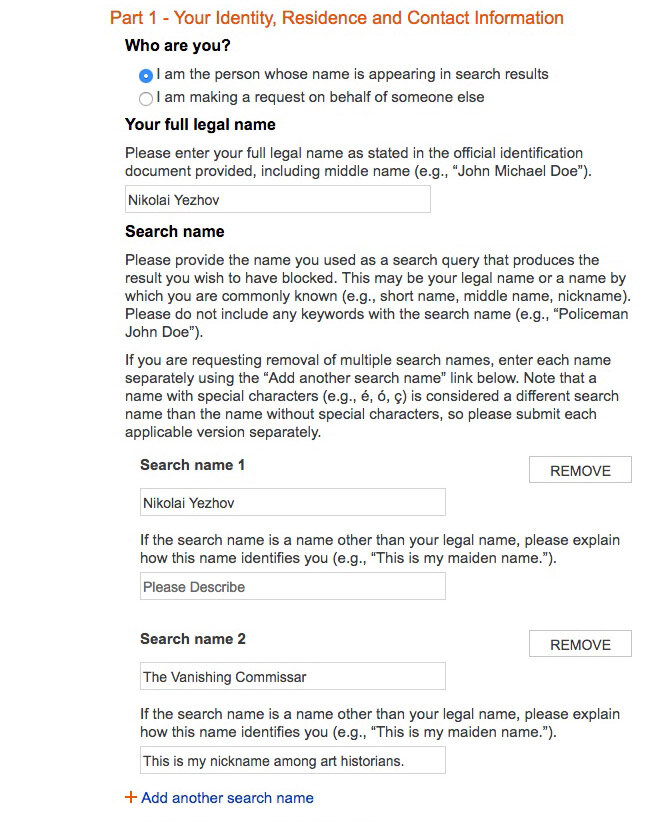
Bing application
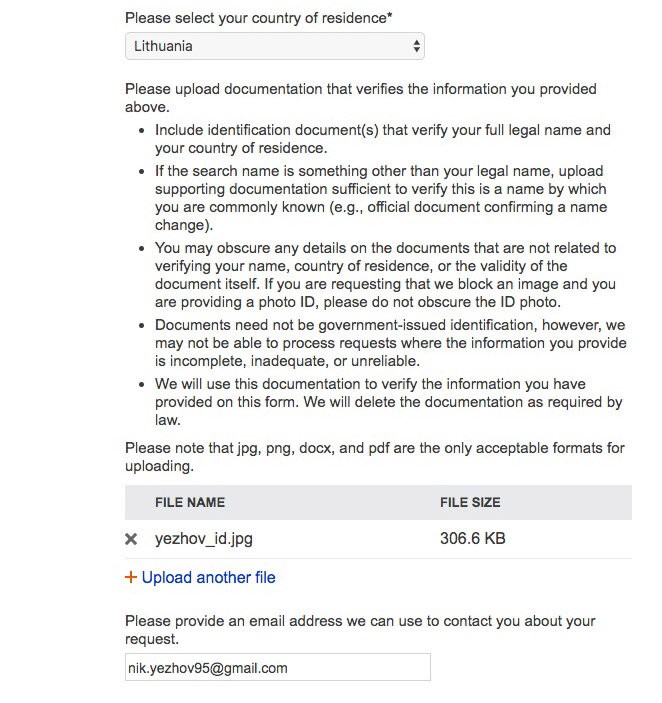
Bing application
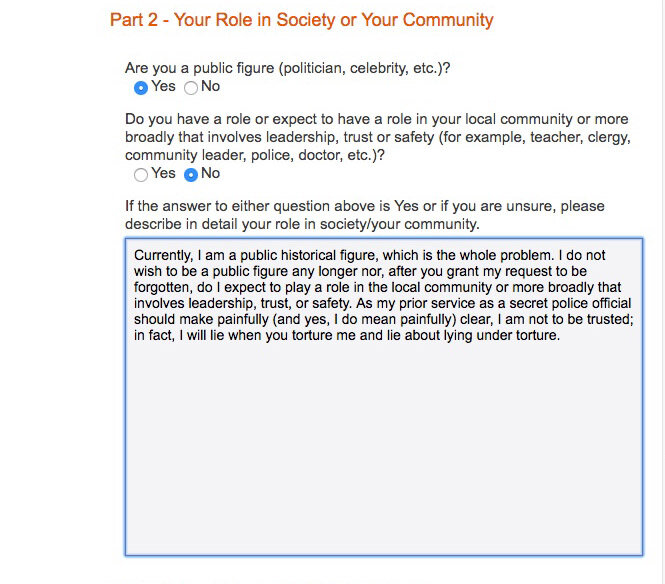
Bing application
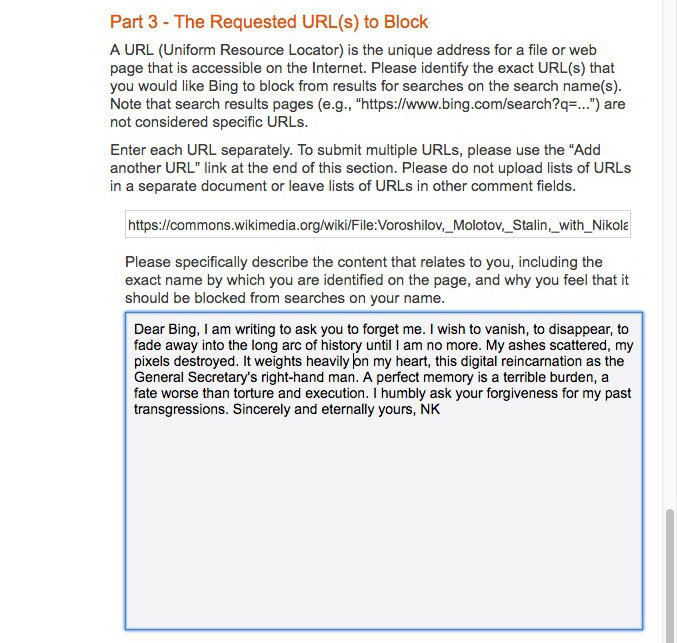
Bing application
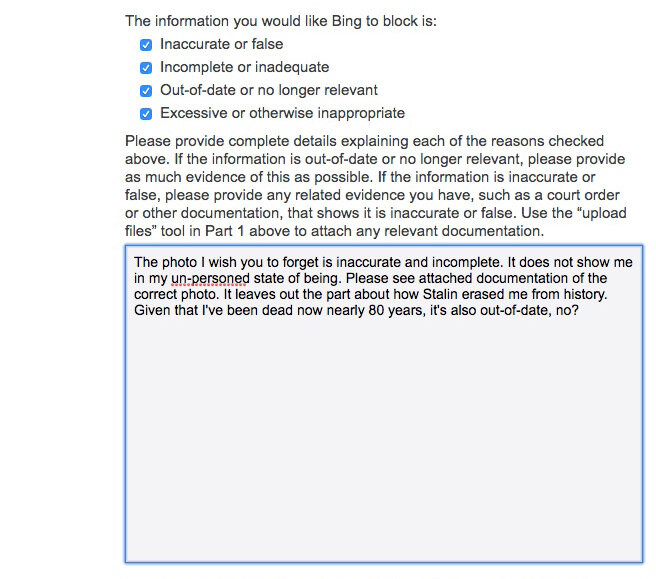
Bing application
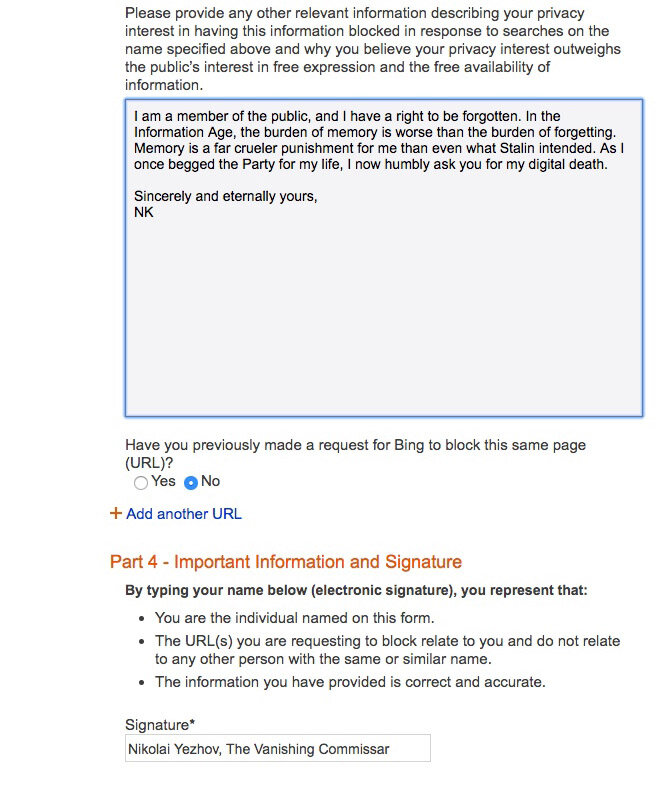
Bing application

Emails with Bing

Emails with Bing

Emails with Bing
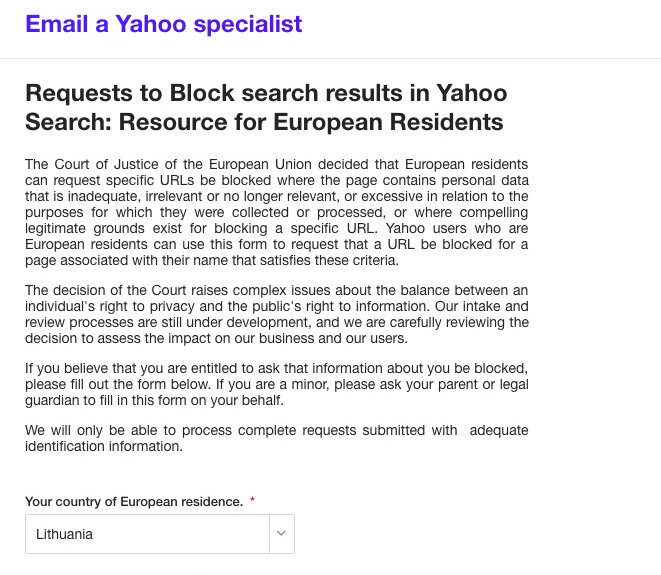
Yahoo application
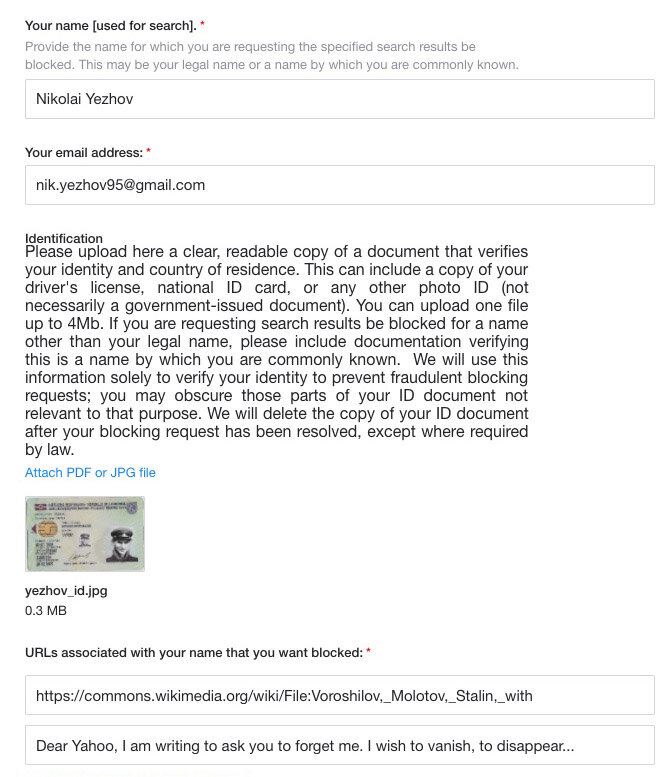
Yahoo application
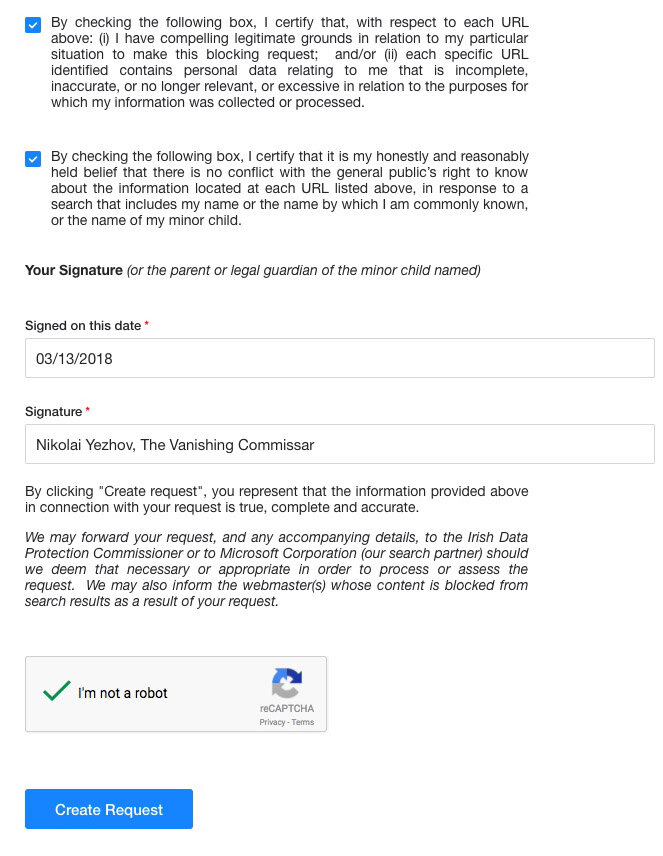
Yahoo application

Email from Yahoo

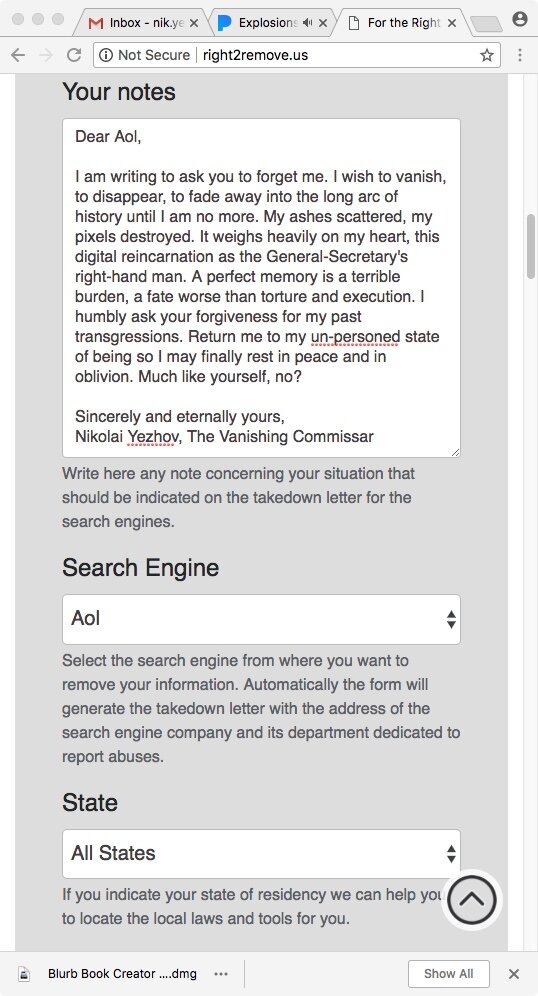
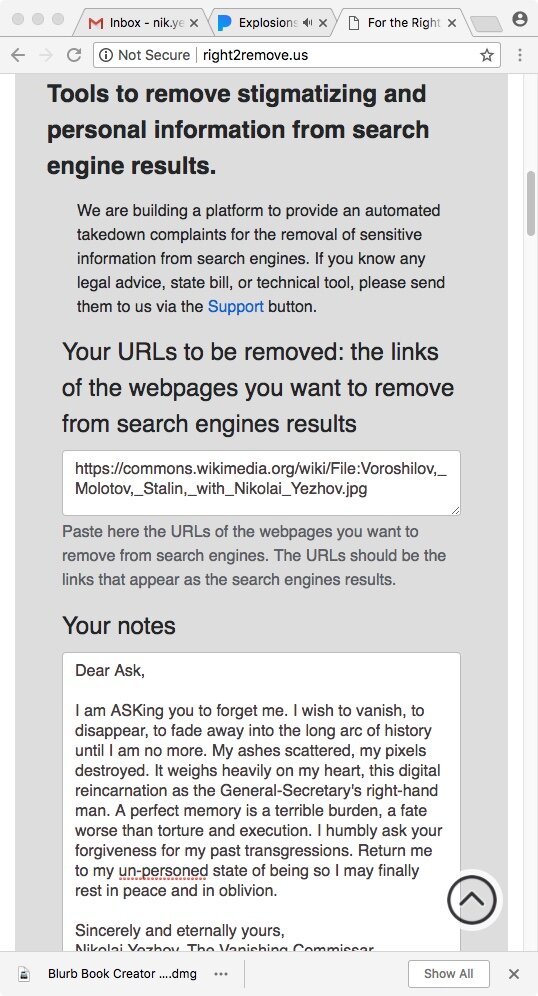
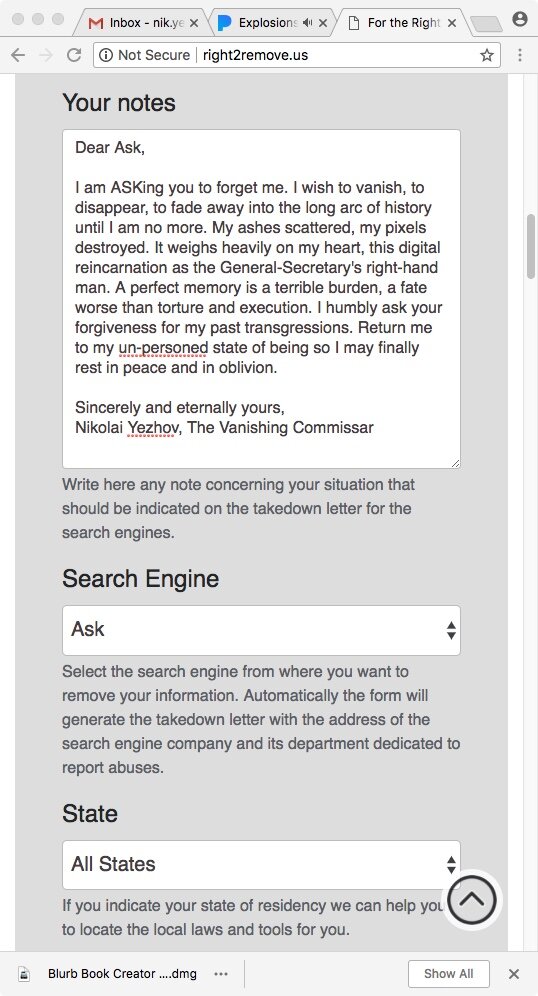
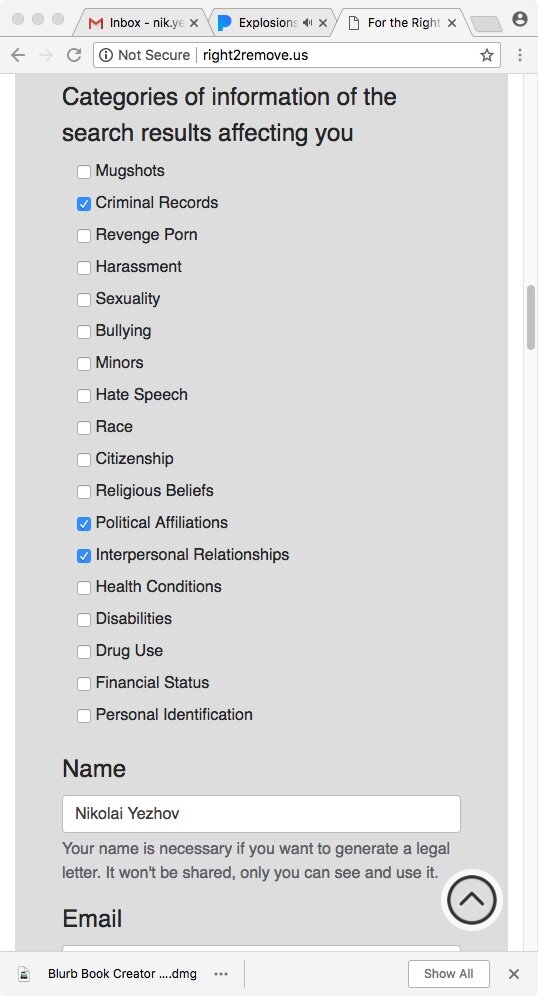
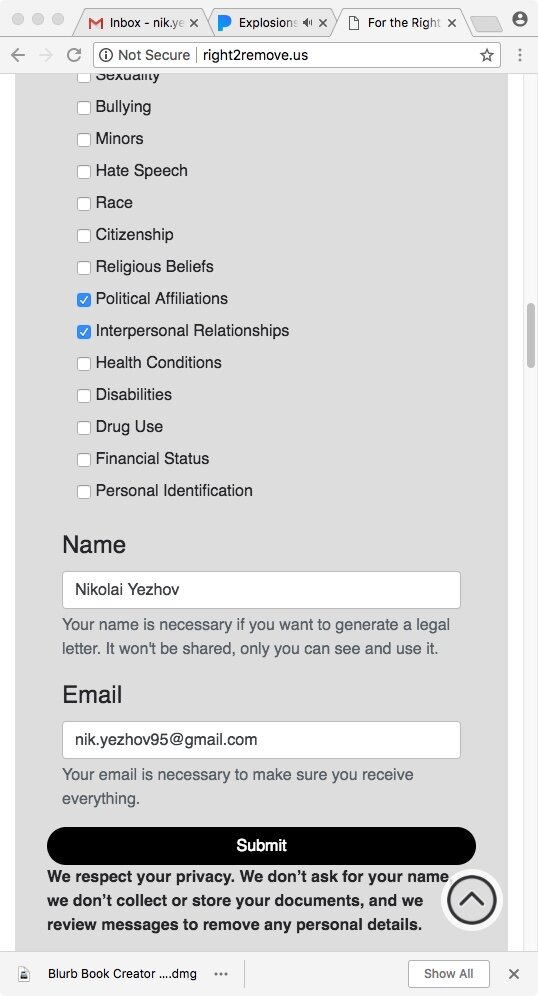

Google application

Google application
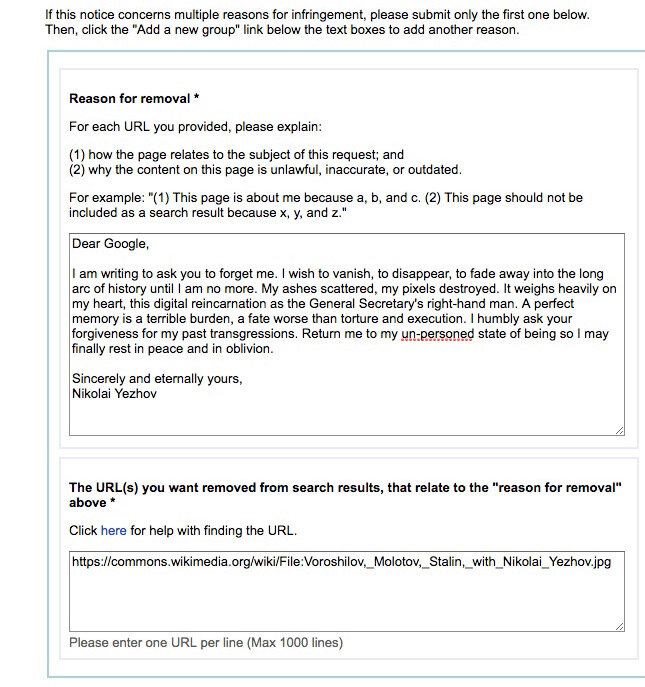
Google application

Google application